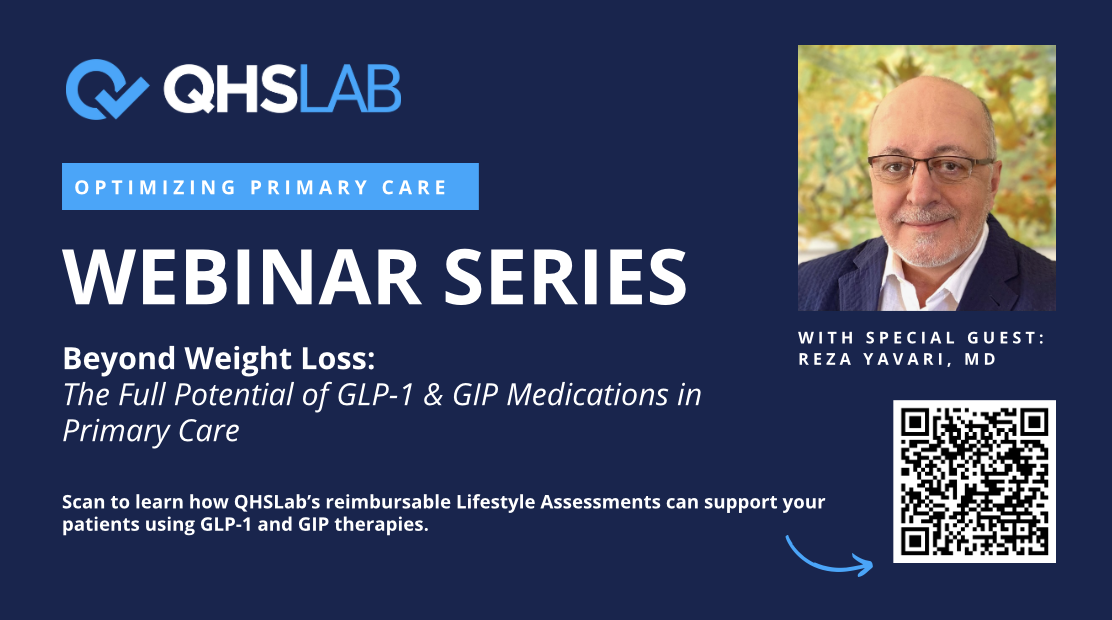Please enter your name and email to watch the webinar. A link to the replay will be sent directly to your inbox.
Allergen Immunotherapy Best Practices Workshop, Featuring Dr. Atoosa Kourosh
Dr. Atoosa is the chair of the American College of Allergy, Asthma, and Immunology’s committee on integrative medicine and is a nationally and internationally renown expert on holistic and integrative allergy and immunology medicine. Tune in to her lecture during the Allergen Immunotherapy Best Practices Workshop.
- 00:00 - 01:10: Introduction
- 01:10 - 02:46: Opening remarks from Dr. Atoosa Kourosh and Lesson Objectives
- 02:46 - 04:06: Understanding Who, And What To Test
- 04:06 - 06:21: Oral Allergy Syndrome, Food-Pollen Cross-Reactivity, and Allergy Symptoms
- 06:21 - 13:32: Screening for Allergies, Allergy Triggers, Perennial and Indoor Allergens, Tree and Weed Relationships, Grass Pollen Relationships
- 13:32 - 19:24: Allergy Testing and the Confirmation of sIgE "at work," Skin testing, vs. sIgE Blood Testing, Interpreting sIgE Blood Test Results
- 19:24 - 22:18: Allergy Skin Testing In Vivo
- 22:18 - 25:43: Medications to Stop Taking Before Skin Testing
- 25:43 - 27:07: Mechanisms Underlying the Interpretation of the Allergy Skin Prick Test and Understanding the Immune Reaction
- 27:07 - 28:01: Single vs. Multiple Head Devices
- 28:01 - 33:46: Histamine Wheal and Flare Interpretation and Recording Result, Post-test Care
- 33:46 - 36:56: Case Study One: Physician Interpretation, Family History, Patient History, Understanding Allergy Baseline Assessment, Symptoms, and Guided Testing Based on Assessment Findings
- 36:56 - 39:42: Case Study Two
- 39:42 - 40:54: Case Study Three
- 40:54 - 41:37: Conclusion, Dr. Atoosa's Motto: "TEST, DON’T GUESS."
- 41:37 - 58:21: Q&A, Including: Testing Mistakes to Avoid, What Equipment to Use, Understanding Negative Controls, Dermatographic Patients
At the end of this video, you will be able to:
- Illustrate general knowledge of the common allergens, house dust, pollens, grass, trees, weeds, cat and dog, molds, and other triggers.
- Explain the mechanisms underlying the interpretation of the basic diagnostic allergy skin prick tests (positive and negative controls) and serological tests for total and specific IgE.
- List contraindications to performing skin testing.
- Name medications that may affect skin testing reactions and the average time of discontinuance before skin testing.
- Describe practical understanding of performing allergy skin tests.
Who and Why to Test
- Patients complaining of allergy‐like symptoms, red‐itchy eyes, sneezing, or upper respiratory infections.
- Asthmatics with possible allergen trigger
- Patients who chronically use antihistamines or nasal steroids
- Pediatric patients, especially those with a stubborn rash, eczema, chronic ear infections, or GI symptoms.
- Patients with obvious signs of an allergic reaction affecting their quality of life or possible serious condition.
- Oral Allergy Syndrome (mouth tingling/itch or gut reactions to stone fruits or certain raw vegetables).
Looking for a webinar tailored to your specific needs?
Contact us today to arrange a special session on the medical topics that matter most to you. Whether it's for your team or personal learning, we're here to provide expert-led webinars designed just for you.
Contact Us!
You may also like...

Beyond Weight Loss: The Full Potential of GLP-1 & GIP Medications in Primary Care
The landscape of GLP-1 and GIP-based weight loss medications is rapidly evolving, and primary care physicians play a critical role in helping patients navigate their options. As interest in these medications grows, providers need up-to-date, evidence-based guidance on prescribing, managing side effects, addressing patient concerns, and optimizing outcomes.

A clinical perspective on the bidirectional relationship between mental & physical health
Psychological factors affecting other medical conditions (PFAOMC) can significantly impact the course and treatment of physical illnesses—potentially precipitating or worsening the condition, interfering with care plans, and contributing to increased morbidity and mortality. In this informative session, you'll explore how integrating mental and behavioral health screenings into routine care can improve patient outcomes, streamline workflows, and boost practice revenue. Learn how QHSLab’s reimbursable digital assessments equip providers to identify and address behavioral health concerns early—providing a comprehensive, whole-person approach to care.

Scale-Based Scores: Development of the Q-Scale
Healthcare overutilization is a pressing concern, leading to unnecessary costs and potential harm to patients. Join us for an insightful webinar on the Q-Scale, a scale-based scoring system designed to help healthcare providers make informed decisions, reduce redundant services, and improve resource allocation.
